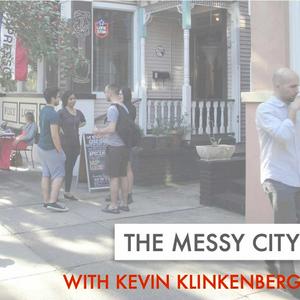Are properties ever really obsolete?
Rodney Dangerfield once famously said, “golf courses and cemeteries are the biggest wastes of prime real estate.” We won’t touch cemeteries in this episode, but we do talk about golf courses. Monte Anderson joins me as we discuss different ways of looking at so-called “obsolete” properties. As a teaser: Monte shares with me what I think is one of the most brilliant ideas I’ve heard about how to work with old or declining churches. You must listen to understand it.The whole discussion reminded me of something I wrote about years ago:About fifteen years ago, I remember reading a planning study for a corridor in Kansas City, Missouri, where I was living and working at the time. We were working with a client that had some redevelopment ideas in mind, and wanted to see what the officially-adopted plan recommended. Like many planning studies, it had a simple market analysis attached to it, with a look at recent trends in the real estate market and some projections for the future. As most planners know, this is typical plain-vanilla planning 101. The market study informs the plan recommendations, which eventually are codified into zoning and process.One thing in particular struck me at the time: the economist’s report bemoaning the “substandard” lot sizes in the area. I had to read it a few times before it became clear the message was that any serious redevelopment would require purchase and combination of many lots into larger development parcels. The notion baked into this was the original lots, many of which were 50 feet wide and around 100 – 150 feet deep (some narrower, some wider), were too small to attract modern, big-boy development. If any developer was ever to be serious about investing, he or she would need something more like what is typical with modern real estate development products. What is typical? Often that means several acres of land in one parcel, so the site can be developed with the necessary large, singular building, sufficient parking, room for storm water improvements, landscaping and lighting. Even in an urban location, the bias toward suburban-style solutions was still very strong, but when urban buildings were desired the thought process was still only a large, single master developer could accomplish transformation. Frankly, most planners and economic developers didn’t know of or trust a different model. The design and development professions still largely cling to this approach.Substandard, obsolete, these are words thrown around a lot by planners and economic development officials. But don’t buy it. Every property can be repurposed or rethought. In fact, Monte is the only person that’s ever made me look at an ugly strip mall and think, “yeah, I could make something cool with this.”Find more content on The Messy City on Kevin’s Substack page.Music notes: all songs by low standards, ca. 2010. Videos here. If you’d like a CD for low standards, message me and you can have one for only $5.Intro: “Why Be Friends”Outro: “Fairweather Friend” Get full access to The Messy City at kevinklinkenberg.substack.com/subscribe
